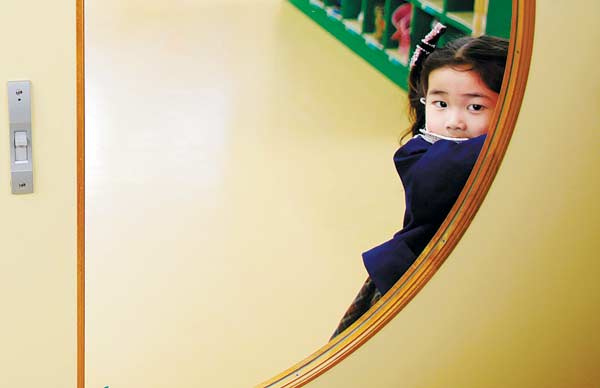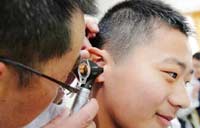No sandbox, no mud pies
Three years after the quake and tsunami wreaked nuclear havoc at Fukushima, children are struggling to adapt to life - mostly indoors. Toru Hanai and Elaine Lies report in Koriyama, Japan.
Some of the smallest children in Koriyama, a short drive from the crippled Fukushima nuclear plant, barely know what it's like to play outside - fear of radiation has kept them indoors for much of their short lives.
Though the strict safety limits for outdoor activity set after multiple meltdowns at the Fukushima Dai-ichi nuclear plant in 2011 have now been eased, parental worries and ingrained habit mean many children still stay inside.
And the impact is now starting to show, with children experiencing falling strength, lack of coordination - some cannot even ride a bicycle - and emotional issues like shorter tempers, officials and educators say.
"There are children who are very fearful. They ask before they eat anything, 'does this have radiation in it?' and we have to tell them it's OK to eat," says Mitsuhiro Hiraguri, director of the Emporium Kindergarten in Koriyama, some 55 kilometers west of the Fukushima nuclear plant.
"But some really, really want to play outside. They say they want to play in the sandbox and make mud pies. We have to tell them: 'No. I'm sorry. Play in the sandbox inside instead'."
Following the 2011 quake and tsunami, a series of explosions and meltdowns caused the world's worst nuclear accident in 25 years, spewing radiation over a swathe of Fukushima, an agricultural area long known for its rice, beef and peaches.



















